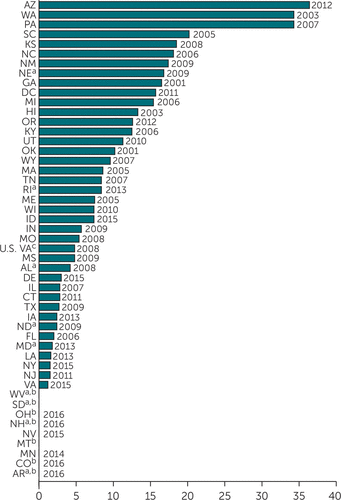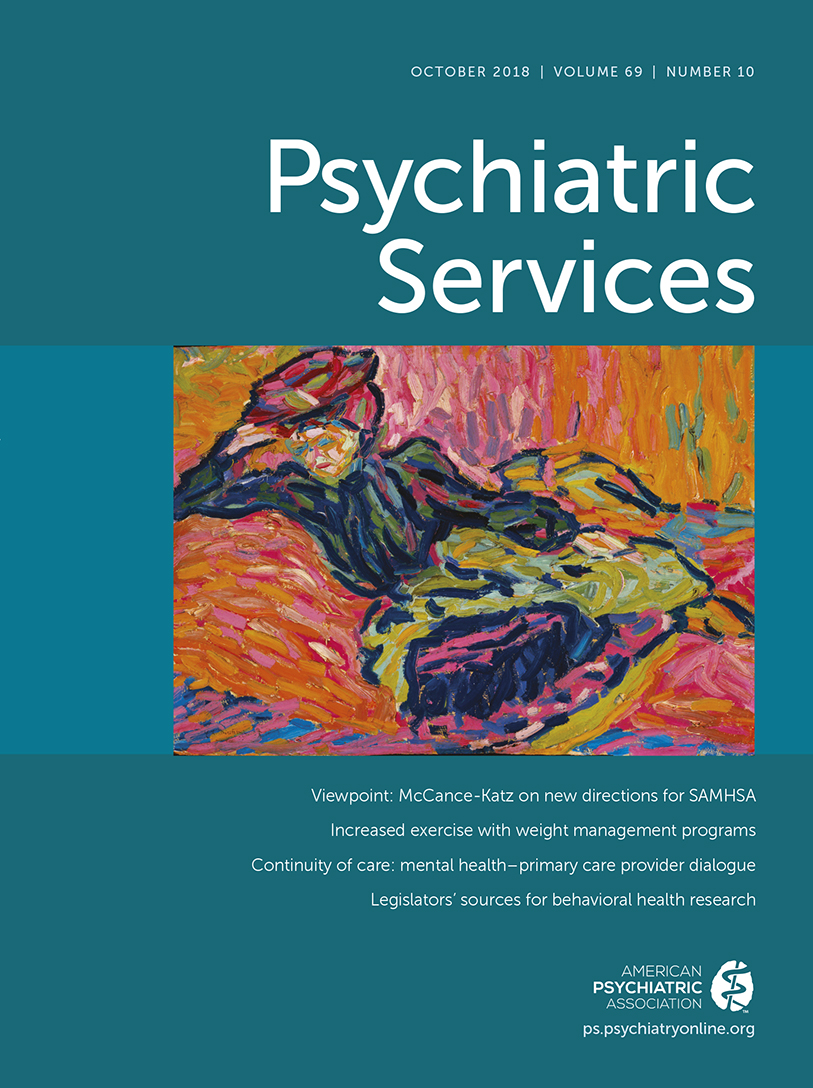National Trends in Peer Specialist Certification
Mental health certified peer specialists (CPSs) have lived experience of mental health conditions and provide peer support services. Certification began in 2001 (1); associated Medicaid reimbursement was authorized in 2007 (2). By 2016, 44 states, the District of Columbia (DC), and the U.S. Department of Veterans Affairs (VA) offered peer specialist training and certification with varying curricula and required training hours (1).
In 2016, in collaboration with peer and university partners, two coinvestigators and I undertook an online survey of CPS-certifying entities in all states, DC, and the VA. Survey questions included the year certification began and the number of CPSs certified since that year.
Certification was initiated between 2001 and 2007 in 15 states and between 2008 and 2015 in 25 states, DC, and the VA (Figure 1). By 2016, four states were developing a certification structure and three were in the planning stage; three states did not offer certification. Nationwide, 25,317 CPSs were certified. The highest state CPS rates per 100,000 population and year certification began were in Arizona, 36.4 (2012); Pennsylvania, 34.3 (2007); Washington, 34.3 (2003); and South Carolina, 20.2 (2005). Virginia’s 1.2 rate was lowest (2015).

FIGURE 1. Certified peer specialists per 100,000 population, by year of program adoption and state
aDoes not bill Medicaid for certified peer specialists’ services
bPlanning or developing peer specialist certification. Vermont, California, and Alaska do not offer peer specialist certification.
cU.S. Department of Veterans Affairs
CPS certification was administered by state departments of mental health, in-state certifying organizations, out-of-state certifying entities offering certification in multiple states, peer- and non-peer–run training organizations, and mental or behavioral health providers. Certification focus areas included adults, families, co-occurring disorders, youth, forensic, and community health work. Only 17% of certifying entities reported collecting outcome data.
Nine states did not bill Medicaid for CPS services. CPSs were employed mostly by peer-run organizations, state- or county-operated community programs, private nonprofit agencies, state- or county-operated inpatient units, and managed care organizations. Required supervision was reportedly provided by a CPS or a clinical supervisor.
Research is needed on CPS employment, supervision, and career advancement.
1 : Peer Specialist Training and Certification Programs: A National Overview. Austin, University of Texas at Austin, Texas Institute for Excellence in Mental Health, School of Social Work, 2016Google Scholar
2




